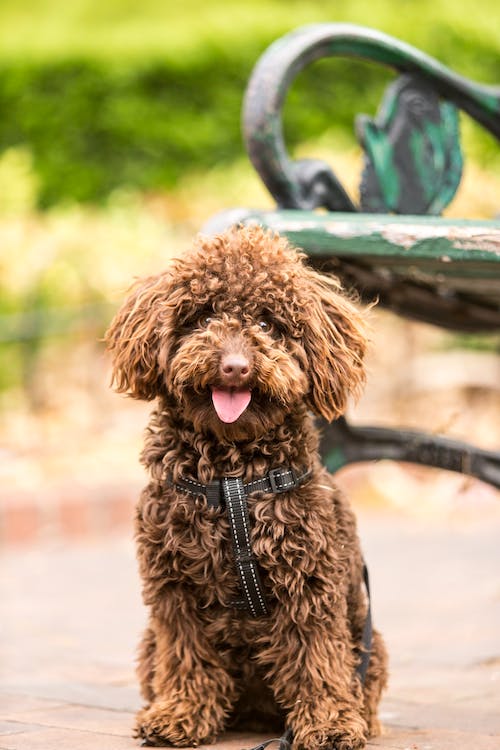"Until one has loved an animal, a part of one's soul remains unawakened." – Anatole France. As a pet owner, there's nothing quite like the unconditional love and companionship you get from your furry friend. However, with this innocence comes an inherent risk of harm in situations where their safety is not taken into consideration. In other words, it is important to highlight that some harmless household products can be toxic to dogs and exploring them is crucial to put your dog's life out of danger.
The Hillsborough Incident and the Case of Pets Ingesting Toxic Substances
It was a close call for the six Hillsborough Park rescue team dogs and their handlers, who had gone on an unsuspecting walk. Little did anyone know that some seemingly innocent household items – chocolate, almonds and grapes – posed new dangers to their furry friends. Fortunately for these canines, the experienced handlers with them noticed something amiss almost immediately and acted quickly. BBC reported that the handlers realized that piles of the potentially harmful food had been left by someone at this Tampa forest park and rushed their four-legged companions away from it. While three were family pets belonging to personal trainers in the search and rescue unit (SAR), two others were part of SAR's emergency response canine pack. The story could have ended tragically but thankfully, due to quick thinking along with prompt action taken by these alert animal handlers, all six pups made it safely into the arms of a nearby veterinarian clinic where they were given induced vomiting as emergency treatment measures respectively. Two dogs ate more than the others, so they had undergone additional procedures; otherwise, all showed signs of recovery which meant a job well done to everyone involved.
The Potential Dangers of Essential Oils and Plant Fertilizers for Dogs
Essential oils are potent liquids made from plants that have been used for medicinal or spiritual purposes throughout history, and now many folks use them as an alternative healing method. But medicine for humans isn't meant for canine companions - the same goes for essential oils– their bodies process chemicals differently than humans, so they're more prone to toxicity. Pet Poison Helpline highlights that common essential oil toxicities seen in dogs include Melaleuca (tea tree) Oil, Pennyroyal Oil, Oil of Wintergreen and Pine Oils – if ingested any one of these substances could cause vomiting, dizziness, diarrhea and even death in extreme cases. The effects can also occur through dermal application - so it's best to keep all Essential Oils far away from curious noses or tongues. Essential oil products made for pets by reputable companies may contain oils such as tea tree in amounts proven safe. Moving on to plant fertilizer toxins — many brands contain nutrients too strong for little bellies that might lead to serious complications if consumed. Even if your pup doesn't go near the gardens themselves — certain fertilizers can be found around the yard since most organic kinds will wash down due to waterproofing systems after a storm or heavy rain showers.
Understanding the Risks of Glue and Adhesives for Dogs
Diisocyanate glue commonly known as Gorilla Glue®, which when ingested and mixed with stomach fluid/acid expands rapidly and consequently forms an immense foam that can cause obstruction in the canine stomachs. Symptoms related to ingestion typically include drooling, throwing up food, hesitance towards meals, puffed out abdominal area as well expulsion attempts due to mild-moderate pain. These cases often require surgical removal of said obstruction matter upon discovery of said ailment symptoms. Research from Petplace states that data shows there's been an increase of over 300% concerning polyurethane glue consumption by canines coincidences. Vomiting episodes, loose stool problems and general listlessness are some outcomes after said contact or intake with this chemical agent subject to hazardous fraction recognition by healthcare authorities.
Essential Guidelines for Dealing with a Toxic Ingestion in Your Dog
If you've already identified the substance as toxic, contact your veterinarian or the ASPCA Animal Poison Control Center 24-hour hotline at (888) 426-4435 right away. It is important to provide as much information about the toxin and how it entered your dog's system to allow for appropriate treatment. Your veterinarian might ask questions like What was ingested? How much was consumed? When did ingestion occur? Answering these questions will help them quickly assess the situation and create a plan of action to protect your pup from further harm. It is also important to take preventative measures in order to keep potentially harmful household items out of reach from your dog - just remember that there are pet-safe alternatives both inside and outside your home. Additionally, be mindful when cooking around, dropping food items that could lead your pooch into some trouble such as chocolates or grapes/raisins. Above all else, avoid giving any home remedy without consulting a veterinary professional first.
Some household items that might seem harmless enough at first glance but should definitely pose a serious risk to our furry friends. Taking precautions now could prevent any horrible health complications down the line — so always be extra aware and cautious about what's going on around your pup.
Guest post submitted by Chrissy Jones
Disclaimer: This content is for informational purposes only and is not meant to diagnose, treat, or replace consulting a primary veterinarian for individualized care.

